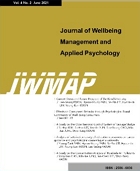- Log In/Sign Up
- E-ISSN2586-6036
- KCI
 E-ISSN : 2586-6036
E-ISSN : 2586-6036
YOUN, Ji-Min
JO, Jae-Yeon
KWON, Woo-Taeg
Abstract
Purpose: Odor generated in traditional markets causes discomfort, hindering the pleasant life of residents, and complaints of odors are steadily increasing every year. Odor is defined as a smell that stimulates a person's sense of smell by stimulating hydrogen sulfide, mercaptans, amines, and other irritating gaseous substances. Research design, data and methodology: It is not easy to grasp and manage the current status of the odor analysis of living odors such as traditional markets. Seongnam City has an advanced new town of Bundang and Pangyo, while old cities such as Sujeong-gu are relatively underdeveloped. Results: As a result, the gap between the old city center and the new city center widens, so it is urgent to develop a balanced development. Based on this, the market of Seongnam-si is divided into the old city center and the new city center, and the odor complaint in the traditional market is analyzed to find a solution. A survey was conducted to understand the current status of odor management in the Seongnam-si market and the odor felt by users. Moran Market, Seongnam Jungang Market, and Kumho Market and Dolphin Market, located in the new city center, were selected as targets. The items of the survey consisted of the frequency and cause of the odor, the current status of market management, matters that need improvement, and efforts to resolve the odor. Conclusions: Therefore, this study aims to help citizens feel better about odor environment in places where odor standards are exceeded or complaints occur frequently, and to help local governments and market merchants establish more efficient and useful development plans.
- keywords
- Odor, Traditional markets, Old city, New city, Solution
- Downloaded
- Viewed
- 0KCI Citations
- 0WOS Citations













